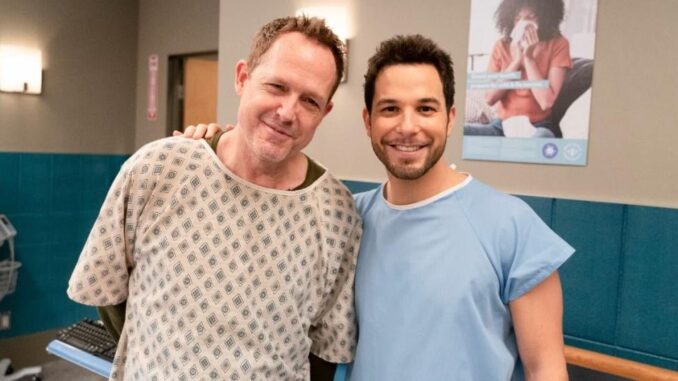
The Unfurling Tapestry: Marcia Gay Harden and the Art of the Narrative Blend in "So Help Me Todd"
There are actors who embody a single note, perfecting a specific chord in the symphony of performance. Then there are those, like Marcia Gay Harden, who are finely calibrated instruments, capable of striking every note with precision, transitioning from a thunderous bass to a delicate high register with seamless grace. It is this very versatility, this profound understanding of emotional architecture, that Harden brings to the fore in her new series, So Help Me Todd, transforming what could be a simple procedural into a masterclass in tonal dexterity – a vibrant, often surprising, blend of comedy and drama.
From the outset, Harden’s established persona provides the granite foundation for the show’s dramatic weight. As Margaret Wright, a formidable, high-powered lawyer, she commands the screen with an authoritative gravitas that speaks volumes of her character’s professional prowess and personal complexities. When the legal stakes are genuinely high – a client’s freedom on the line, a career hanging by a thread – Harden’s intensity is palpable. Her expressions, a subtle tightening of the jaw, a steely gaze that pierces through evasion, convey the heavy burden of responsibility and the intricate dance of legal strategy. Here, the drama is not merely spoken; it is etched onto her face, resonating in the deliberate cadence of her voice, reminding us that behind the sharp suits and perfectly coiffed hair lies a woman who understands consequence.
Yet, it is precisely this dramatic bedrock that allows the comedy to land with such delightful, often cathartic, impact. The catalyst, of course, is Todd (Skylar Astin), her free-spirited, often chaotic private investigator son. Their relationship is the show’s central comedic engine – a generational clash, a professional mismatch, and a mother-son dynamic that swings wildly between exasperation and unwavering love. Harden, with her background in both sharp-witted independent films and broad comedies, leans into Margaret’s dry wit, her incredulous reactions to Todd’s antics, and her occasional, almost accidental, forays into physical comedy. We see the rigid lawyer momentarily flustered, her meticulously ordered world thrown into disarray by a son who operates on instinct rather than protocol. A perfectly timed sigh, a raised eyebrow that conveys an entire internal monologue of parental judgment, or a moment of bewildered exasperation as Todd explains some outlandish scheme – these are the brushstrokes of comedy Harden wields, making us laugh not at Margaret, but with the very human struggle of maintaining composure amidst chaos.
The brilliance, as Harden herself likely perceives, lies in the show’s seamless pivot, its refusal to stay strictly in one lane. One moment, Margaret is delivering a powerful closing argument, her voice resonating with conviction, and the next, she’s bickering with Todd about his questionable fashion choices or his inability to pay rent. The transition isn’t jarring; it’s organic, a reflection of life itself, where moments of profound seriousness are often punctuated by the absurd, and laughter can be a necessary release from tension. This narrative chiaroscuro allows the drama to feel more poignant because it’s not relentless, and the comedy to feel sharper because it’s not without stakes. Margaret’s vulnerability, often masked by her professional armor, becomes all the more touching when it surfaces unexpectedly after a moment of comedic relief. Conversely, her moments of exasperated humor deepen our understanding of her as a character, preventing her from becoming a one-dimensional legal eagle.
In essence, So Help Me Todd doesn’t simply mix comedy and drama; it intertwines them, creating a richer, more textured tapestry. Marcia Gay Harden is the weaver, her performance ensuring that each thread – the gravitas of a legal battle, the lightness of familial squabbles, the tender bond between mother and son – is given its due. She understands that life, particularly a life as full and complex as Margaret Wright’s, is a constant tightrope walk between the solemn and the silly. And in her hands, that precarious balance becomes not just watchable, but genuinely illustrative of the messy, beautiful reality we all inhabit, reminding us that sometimes, the best way to cope with the absurdity of existence is to simply, wonderfully, laugh.
